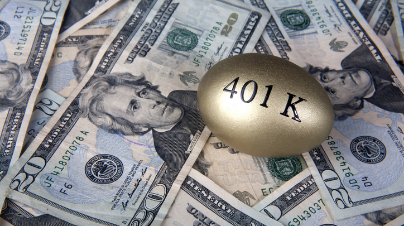Retirement savings are a critical part of financial planning, and 401k plans are one of the most popular ways to save for retirement. However, there may be times when you want or need to access your 401k funds before you reach retirement age. In these cases, it is important to understand the rules and regulations regarding early withdrawal from a 401k plan and any exceptions that may apply. This article will discuss 401k early withdrawal exceptions that allow you to access your funds without incurring a penalty.
What is an Early Withdrawal?
An early withdrawal from a 401k plan is any withdrawal of funds prior to reaching the age of 59 ½. Generally, when you make an early withdrawal from your 401k plan, you will incur a 10% penalty in addition to any taxes due on the amount withdrawn.
Exceptions To The Penalty
Fortunately, there are several exceptions that allow you to access your funds without incurring a penalty. These exceptions include:
IRS Rule 72(t) SEPP: Substantially Equal Periodic Payments:
This exception allows you to withdraw money from your 401k plan on an equal periodic basis over a period of time without incurring the 10% penalty. However, this exception requires that payments be made for at least five years or until you reach age 59 ½, whichever is longer.
Hardship Distributions:
If you are facing financial hardship due to an immediate and heavy financial need such as medical expenses or funeral costs, you may be able to withdraw money from your 401k plan without incurring the 10% penalty. However, this exception is limited and only applies in certain circumstances such as medical expenses or funeral costs.
Unreimbursed Medical Expenses:
If you have unreimbursed medical expenses that exceed a certain percentage of your adjusted gross income (AGI), then you may be able to withdraw money from your 401k plan without incurring the 10% penalty. This exception applies only if the amount withdrawn does not exceed the amount of unreimbursed medical expenses incurred during the tax year in which the distribution was made.
First-Time Home Purchase:
If you are purchasing a first home for yourself or an immediate family member (spouse, child or grandchild) then you may be able to withdraw up to $10,000 from your 401k plan without incurring the 10% penalty. This exception applies only if the home purchase was made within 120 days of withdrawing funds from your 401K plan and must be used towards purchasing or building a primary residence for yourself or an immediate family member.
Conclusion
The rules and regulations regarding early withdrawals from a 401K plan can be complex and confusing but understanding them can help ensure that you do not incur unnecessary penalties when accessing your retirement savings prior to reaching retirement age. By understanding these exceptions, it is possible for individuals who want or need access their retirement savings before they reach retirement age can do so without incurring additional penalties beyond taxes due on the amount withdrawn.



